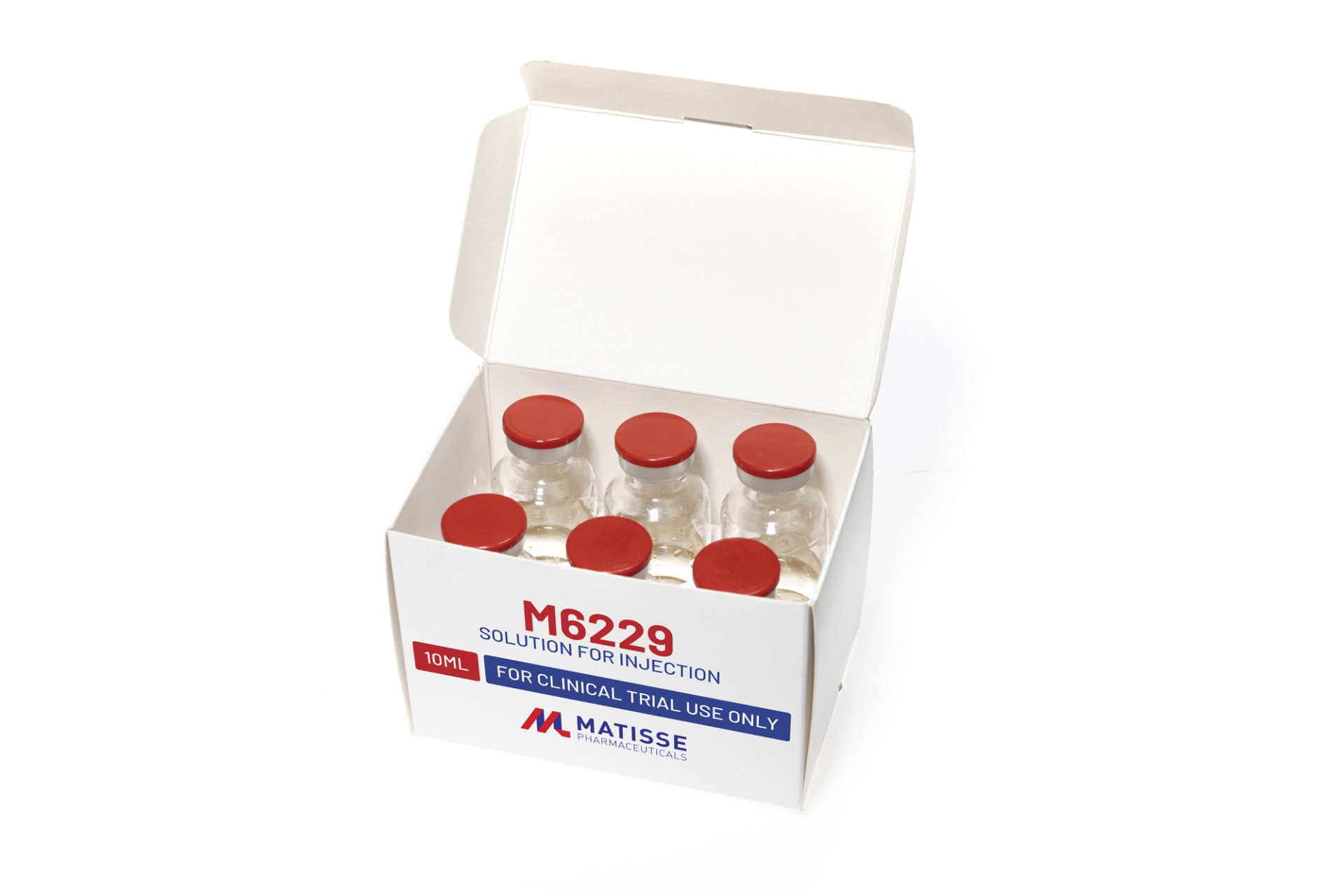
Geleen, October 24, 2024
Matisse Pharmaceuticals B.V., a clinical stage company developing a medicinal product for the treatment of sepsis, today announced that it received green light from the BfArM (German Regulatory Authorities) to start a phase 1 study evaluating the safety, tolerability & pharmacokinetics of a prolonged intravenous (IV) infusion with its lead compound M6229.
“Receiving BfArM approval to conduct this phase 1 trial is a major milestone for the company. With this approval, Matisse takes another step in bringing a highly needed effective sepsis treatment closer to the 49 million patients suffering from sepsis every year”, says Marcel Jacobs, Chief Executive Officer of Matisse Pharmaceuticals.
Phase 1 design
The study will consist of single-blind, randomized, placebo-controlled, IV infusion cohorts, in which the safety, tolerability and PK of M6229 will be assessed in healthy volunteers when administered continuously for 120 hours. Matisse expects to enroll the first healthy volunteer in November 2024. The study will be executed and managed by Charité Research Organisation located in Berlin, Germany.
In Matisse’s first and successful human clinical trial in severely ill sepsis patients, finalized earlier this year, a 6 hour continuous IV infusion was applied. The study showed favorable safety and tolerability as well as close to dose-proportional pharmacokinetics of IV administered M6229 in critically ill patients with sepsis. The study also showed pharmacodynamic effects on histones, CRP levels and SOFA scores.
“We are conducting this Phase 1 bridging study to test extended dosing of M6229 in healthy adults. Given the results of the first in human study in combination with the short half-life of M6229, we believe that a prolonged infusion duration could be very effective in irreversibly stopping the harmful inflammatory responses that occur in sepsis patients. Once we will have positively concluded this phase 1 study, we aim to apply this longer infusion duration to our phase 2 study, which is currently in preparation”, said Kees Groen, Matisse’s Chief Development Officer.
About M6229 and sepsis
According to the WHO, sepsis is one of the leading causes of death worldwide. Currently, there is no effective treatment against sepsis. From the 49 million patients globally suffering from sepsis every year, more than 20% die. Approximately 40% of the sepsis cases are children under the age of 5, with close to 3 million children not surviving sepsis. According to a study by Buchman et al. (2020), published in the Journal of Critical Care Medicine, sepsis is the most common cause of in-hospital deaths, costing over $62 billion annually in the USA alone.
Matisse’s platform technology is based on the discovery that in most patients suffering from sepsis, proteins called histones are released into the blood stream by the innate immune system and apoptotic and/or necrotic cells, where they are toxic to other cells. Due to this self-enforcing cascade, people may die from organ failure within one or two days. Preclinical results have shown that by irreversibly binding the toxic circulating cationic histones with Matisse’s highly anionic product M6229, the negative cascade is inhibited. In a first in human clinical study, performed at the intensive care unit (ICU) of the Amsterdam University Medical Center, in total 10 critically ill patients in ICU setting received a six-hour IV infusion of M6229. This study met its primary objectives, showing favorable safety and tolerability as well as close to dose-proportional pharmacokinetics of IV administered M6229 in critically ill patients with sepsis. The study also showed pharmacodynamic effects on histones, CRP levels and SOFA scores. Based on available data, it is concluded that the infusion with M6229 should be started as soon as possible after patients are diagnosed with sepsis to be most effective. Matisse Pharmaceuticals is preparing for a Phase II clinical study in which critically ill sepsis patients will receive an IV infusion which should last until discharge from ICU, or the maximum allowed duration of infusion of 120 hours is reached.
About Matisse Pharmaceuticals
Matisse Pharmaceuticals B.V. was founded in 2014 in Geleen, the Netherlands. Matisse targets life-threatening inflammation by neutralizing cytotoxic components of the inflammatory system. Its M6229 program is aiming at the development of a medicine to fight sepsis and septic shock.
